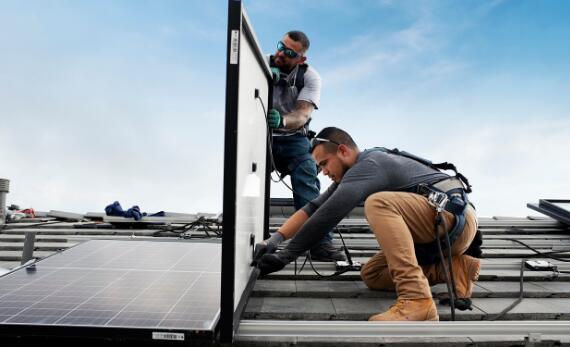Falling PV prices and expanded financing options have contributed to a rise in rooftop solar deployment among lower-income households in the US in recent years, a new report from Lawrence Berkeley National Laboratory (Berkeley Lab) has revealed.
Although incomes of households that install PV systems tend to be higher than those of the general population, solar adoption has been slowly migrating toward less affluent households, according to the research.
Between 2010 and 2020, average solar adopter incomes in the US fell 17% from US$138,000 to US$115,000, thanks in part to programmes supporting low- to moderate-income (LMI) households and general market maturation.
The annual report, titled Residential Solar-Adopter Income and Demographic Trends, is based on data for 2.3 million residential solar adopters across the US and includes figures on systems installed up to the end of 2020.
Berkeley Lab said rooftop solar is broadening by expanding geographically into states with generally lower-income levels and deepening by reaching lower-income households in existing markets. These trends reflect falling prices and the emergence of policies and business models that support broader adoption.
Most states show declining solar adopter incomes over time, with generally an average 1 – 2% drop per year between 2010 and 2020, according to the report.
Mississippi is among the states looking to encourage rooftop PV deployment by LMI households. As part of new net metring rules released in January, utilities in the state will offer a one-time US$3,000 upfront cash rebate to eligible residential customers who purchase a rooftop solar installation.
Elsewhere, Louisiana-based residential solar provider PosiGen recently secured US$100 million in preferred equity financing to accelerate its work of installing rooftop PV and efficiency solutions for LMI households.
Despite solar’s migration towards less affluent homes, the Berkeley Lab report said solar adopters’ median household income was US$115,000 in 2020, compared to the US average of $63,000. That disparity is partly related to home ownership, and also to the fact that roughly half of residential solar adopters were in California, a relatively high-income state.
High-earning households also install larger solar systems, the report said, with arrays added by the top-income households on average 23% larger than the lowest-income households.
As well as income, solar adopters differ from the broader US population in terms of a variety of other demographic and socioeconomic measures, the report reveals. Although residential solar uptake has been slowest among the youngest (25 – 35) and oldest (65+) age groups, Berkeley Lab said growing technology acceptance and greater availability of financing have contributed to an increasing share of solar adopters within the oldest age group.
The research also found that compared to the broader US population, residential solar adopters have greater representation by Asian and Hispanic households, lower representation among Black households and similar by white households.






